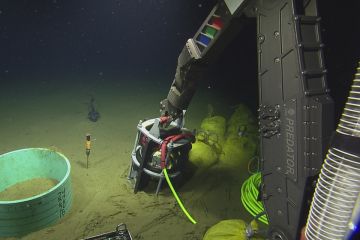"Drop, Cover and Hold On" on Oct. 19
The trip from the airport looked normal enough. The occasional chimney was down, but other than that there was no real sign that a set of major damaging earthquakes had occurred. That is, until we came across the church. Walls had fallen out, though the roof was somehow still being held up. It looked like an explosion had occurred, though we knew it was from the ground moving.
As we moved closer to the downtown area we could see more and more damage. Bricks on sidewalks, broken windows, buildings off their foundations and leaning, caved-in walls with roads cracked or uneven. Areas were blocked off out of concern for safety and whole business districts were closed. Things seemed to be moving in slow motion, with an eerie quiet across the city.
This was the scene two weeks after the Feb. 22, 2011 earthquake in Christchurch, New Zealand. Christchurch is a city about the same size as greater Victoria.
This trip, my second to Christchurch, opened my eyes wide to the complexities of responding and recovering from a major earthquake. The disruptions to transport, utilities, business, education and social services were immense. How does a community decide what are the priorities for recovery when so much has been impacted?
When I asked residents what they wish they’d done in advance of the earthquakes, they answered with statements like:
- “I wish I’d listened to the emergency people and had more supplies”;
- “I needed a torch (flashlight). The power went out and I couldn’t see. There was broken glass and everything seemed to be on the floor”;
- “Water containers, even empty ones. There was water, but it was across town. I had no containers to move that water to where I was staying.”
The majority of things people said they wish they’d done in advance were really simple, yet they’d made a decision to do little or nothing to prepare for disaster. They all wished they’d done more.
Victoria sits in a region where three different types of earthquakes can occur. Any of these can cause structural damage. Most people here have no idea what a major damaging earthquake can be like. It is hard to take seriously something you’ve never seen or experienced.
Here at UVic we encourage all students, faculty and staff to become prepared. Being prepared isn’t hard, but it does take a conscious decision. Here are some simple suggestions about what you can do:
Learn what to do during an earthquake to protect yourself—Drop, Cover and Hold On! Participate in the Great British Columbia ShakeOut on Oct. 19. Encourage others to do so as well.
Talk to your family and friends about your plan if disaster strikes. Decide on a meeting location. Assume telephone lines will be overloaded.
Gather emergency supplies, including water, food and other materials to assist you if the community is greatly disrupted. Attend an emergency preparedness session and learn how to be better prepared.
Visit the UVic Emergency Planning website for information on how to get prepared, to sign up for an emergency preparedness session and to learn how to participate in the ShakeOut event this year.
In this story
Keywords: shakeout, earthquake, emergency, administrative

